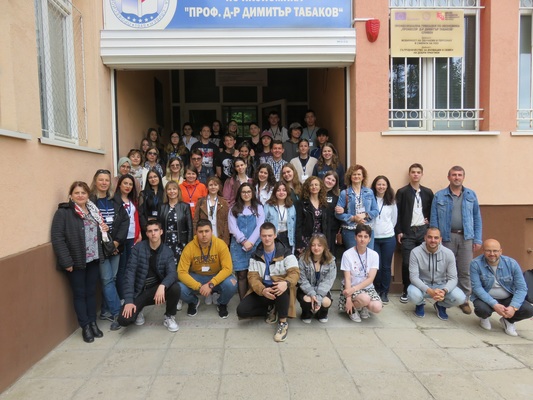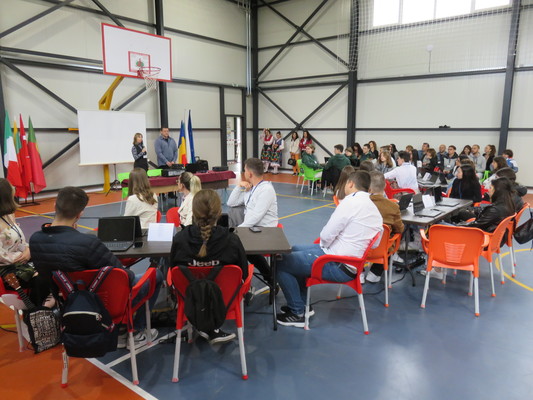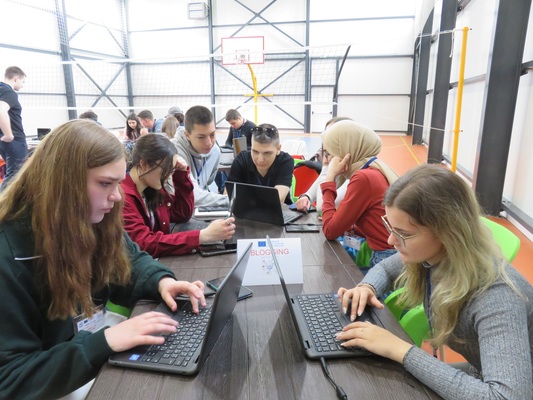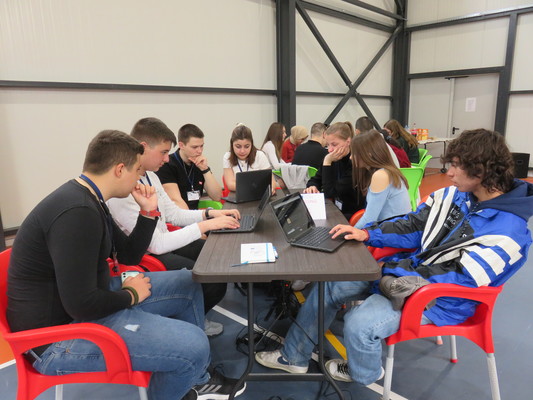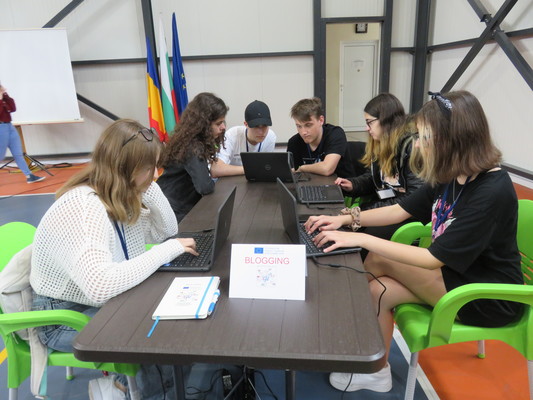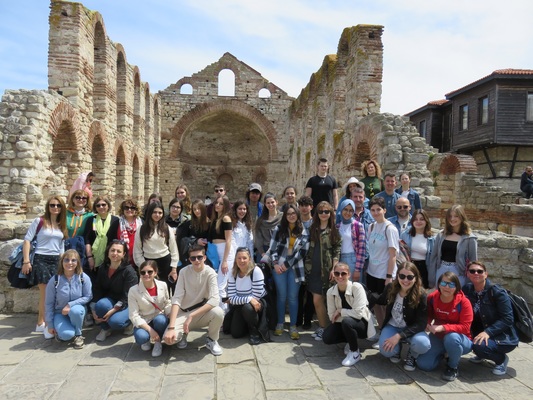
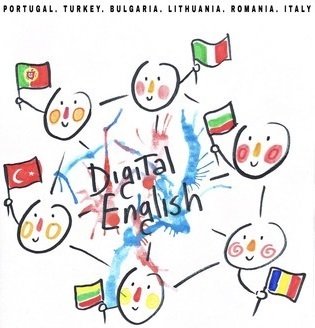
From 2 to 6 May 2022 the third Learning/Teaching/ Training Activity of the project “Digital English” was held Sliven, Bulgaria. The meeting was hosted by the Bulgarian school – Secondary Vocational School of Economics “Prof. Dr. Dimitar Tabakov”. The topic of the meeting was “Learning Doesn’t End in the Classroom”. The host school presented some digital resources for teaching and learning English - British council: Learn English, BBC Learning English, Multimedia English, My English Pages, Short Stories, Perfect English Grammar. The digital resources could be used at class, but also in a friendly environment where learning and teaching can be extended at home.
The activities at school included a workshop “How to create your own blog”. The students from the partner countries were grouped in 5 international teams with the task to create blogs. The participants followed all steps to create blogs and were very enthusiastic and creative in discussing the topics and the content of their blogs. The workshop was aimed at developing hard and soft skills. The hard skills development focused on the digital and media literacy while the soft skills development focused on teamwork, collaboration, communication, creativity, self-confidence and presentation skills.
The participants visited Veliko Tarnovo – the medieval capital of Bulgaria. They had a lecture on Bulgarian history in the historic fortress Tsarevets. In the Multimedia Visitor Center wax figures recreated the glory of the Second Bulgarian Kingdom (ХІІ-ХІV century). The lecture there was on the life of Bulgarian people in this period. A walking tour in Samovodska Charshia Street introduced the participants to the Bulgarian crafts traditions. Another activity was a visit of Nessebar - an ancient city and one of the major seaside resorts on the Bulgarian Black Sea Coast.
The aim of the cultural activities was to give the participants chance of getting in touch with the Bulgarian cultural heritage, which is an important factor in maintaining cultural diversity. Being immersed in different culture can broaden the horizons, give a different viewpoint and allow understanding the background, history and context people are coming from. The cultural activities strengthened the cross-cultural communication, respect and tolerance between partners.
The assessment of the meeting was done by filling in a questionnaire prepared by the Bulgarian partner. Students were also interviewed during the meeting about the personal qualities they have developed participating in the project activities and Erasmus+ programmes. All participants received certificates from the host institution.
PADLET OF THE WORKSHOP
